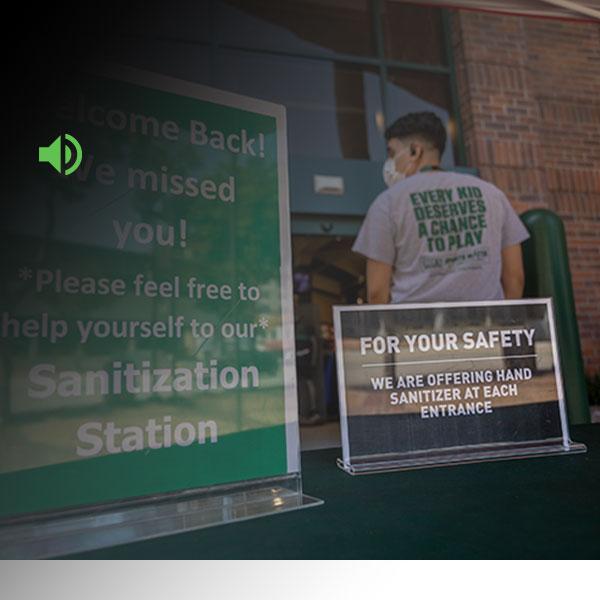Story Highlights
- Americans more likely to maintain or increase holiday spending with stimulus payment
- Effect of stimulus is present even among those facing financial difficulties
- Stimulus effect is greatest among those who say COVID-19 is getting worse
Editor's Note: The research below was conducted in partnership between Franklin Templeton and ║┌┴¤═°.
WASHINGTON, D.C. -- Recent findings from the new Franklin Templeton-║┌┴¤═° Economics of Recovery Study indicate that the strength of the holiday sales season could be aided by a new round of federal stimulus checks before the end of the year. Specifically, Americans are more likely to say they will spend less (37%) rather than more (16%) this holiday season than last year when asked to assume there will be no additional government stimulus payment. However, the proportion planning to spend less drops to 30% when people are asked to assume they will receive a $1,200 stimulus payment, with 22% saying they will spend more under this condition.

Bar graph. Americans' plans to spend for the holiday season, based on whether they receive a new stimulus payment. 37% of Americans say they will spend much or somewhat less this holiday season than they did last year, if they do not receive a new stimulus payment. 30% say they would spend much or somewhat less this holiday season than they did last year if they do receive a new stimulus payment of $1,200.
These results are based on 5,002 web-based surveys completed Oct. 1-9 as part of the Franklin Templeton-║┌┴¤═° Economics of Recovery Study. This study is conducted via an opt-in web panel. The sample has been adjusted statistically to ensure it represents key subgroups in their proper proportions of the U.S. adult population.
The finding that, with or without a new stimulus check, more Americans plan to scale back than to increase their holiday spending this year is consistent with a separate ║┌┴¤═° holiday spending poll, in which Americans estimated they would spend almost $150 less this year on gifts than they estimated in 2019.
As expected, Americans who report experiencing financial difficulties are particularly likely to say they will spend less this year, but their responses also differ according to whether they are asked this in light of a possible stimulus payment. Among U.S. adults who say they are "having to draw on savings" or "running into debt," 42% say they will spend "much less" if they receive no new assistance. Among those asked to assume they will receive a $1,200 payment, that figure drops to 33%.

Bar graph. Plans among Americans who are currently drawing on their savings or running into debt to spend this holiday season compared with last year, based on the potential for an additional government stimulus payment. 63% of Americans who are currently drawing on their savings or running into debt plan to spend much less or somewhat less than last year, if they don't receive any new assistance. Among this group, if they receive a new stimulus payment of $1,200, 56% say they will spend much or somewhat less than last year.
Stimulus May Boost Holiday Spending Most Among Those Pessimistic About COVID-19
Overall, 53% of Americans currently say the coronavirus situation in the U.S. is getting worse, while 25% say it is staying the same and 22% say it is getting better. Those who believe the situation is getting worse are more responsive than the COVID-19 optimists to the possibility of a stimulus payment, with 69% saying they will spend less than last year without additional stimulus money, whereas 57% would spend less with a $1,200 payment. Among those who believe the COVID-19 situation is "staying the same" or "getting better," the prospect of receiving a payment makes little difference in the likelihood that they will spend less this year.
| Do not receive any new assistance |
Receive a stimulus payment of $1,200 |
Difference | |||||||||||||||||||||||||||||||||||||||||||||||||||||||||||||||||||||||||||||||||||||||||||||||||
|---|---|---|---|---|---|---|---|---|---|---|---|---|---|---|---|---|---|---|---|---|---|---|---|---|---|---|---|---|---|---|---|---|---|---|---|---|---|---|---|---|---|---|---|---|---|---|---|---|---|---|---|---|---|---|---|---|---|---|---|---|---|---|---|---|---|---|---|---|---|---|---|---|---|---|---|---|---|---|---|---|---|---|---|---|---|---|---|---|---|---|---|---|---|---|---|---|---|---|---|
| % | % | pct. pts. | |||||||||||||||||||||||||||||||||||||||||||||||||||||||||||||||||||||||||||||||||||||||||||||||||
| Americans who believe COVID-19 situation is getting better | 58 | 62 | +4 | ||||||||||||||||||||||||||||||||||||||||||||||||||||||||||||||||||||||||||||||||||||||||||||||||
| Americans who believe COVID-19 situation is staying the same | 52 | 48 | -4 | ||||||||||||||||||||||||||||||||||||||||||||||||||||||||||||||||||||||||||||||||||||||||||||||||
| Americans who believe COVID-19 situation is getting worse | 69 | 57 | -12 | ||||||||||||||||||||||||||||||||||||||||||||||||||||||||||||||||||||||||||||||||||||||||||||||||
| FRANKLIN TEMPLETON-GALLUP ECONOMICS OF RECOVERY STUDY, Oct. 1-9, 2020 | |||||||||||||||||||||||||||||||||||||||||||||||||||||||||||||||||||||||||||||||||||||||||||||||||||
Implications
Analysts are forecasting a major shift toward online shopping this holiday season, which should limit the decline in spending attributable to fears of contracting the coronavirus. But the crisis has also reduced many Americans' disposable income, at least temporarily.
However, the current survey also corresponds with recent economic analyses suggesting a new round of federal stimulus checks would result in significantly higher holiday spending. Further, the effect of the proposed stimulus may be clearest with regard to offsetting apprehension about spending among those who believe the COVID-19 situation is getting worse.
To receive ongoing updates about findings from the Franklin Templeton-║┌┴¤═° Economics of Recovery Study, please . To learn more about the study, please .




